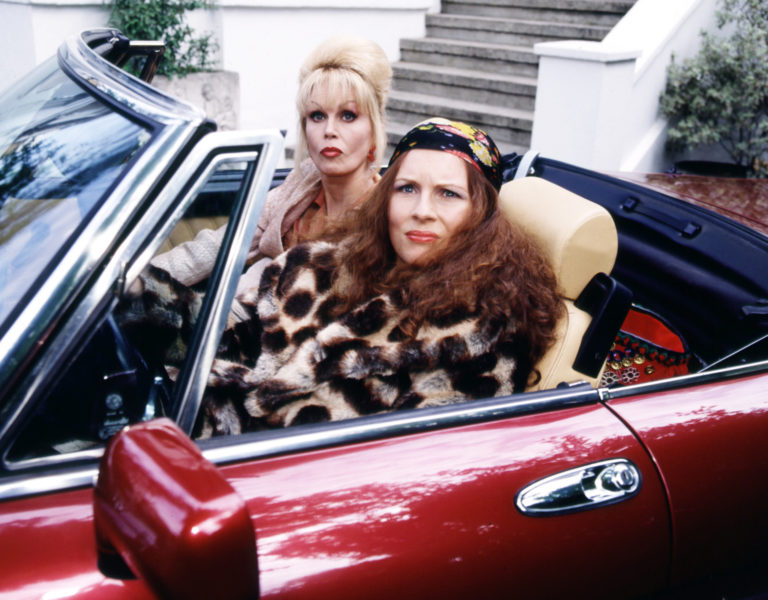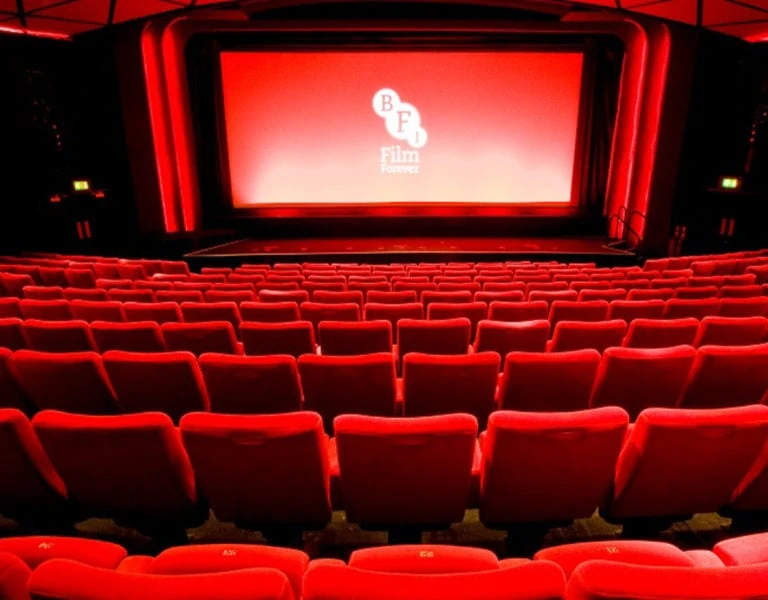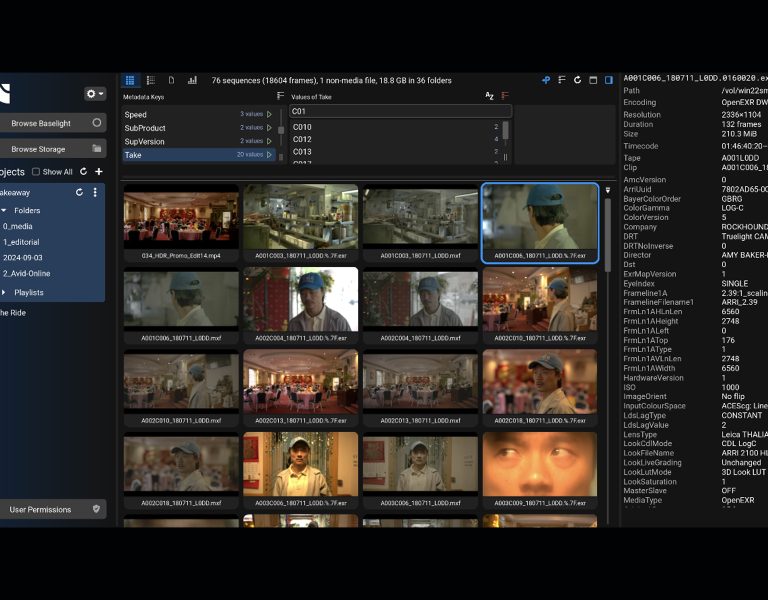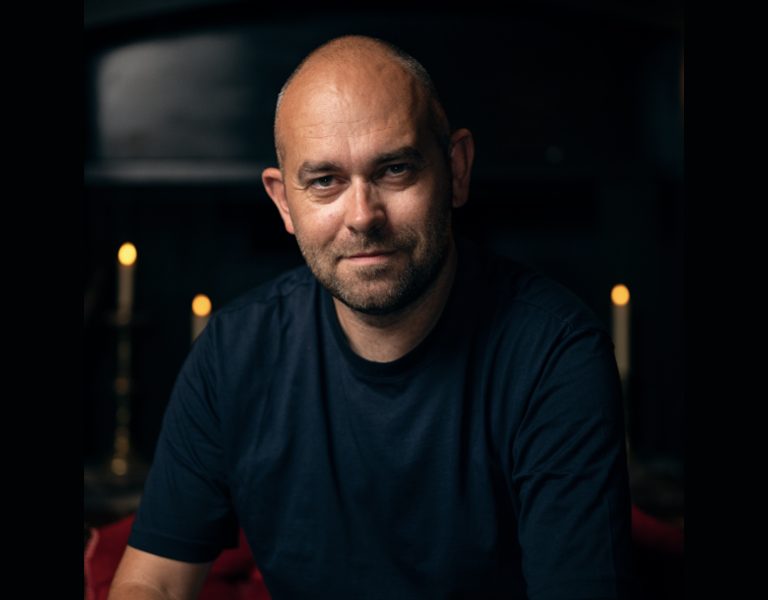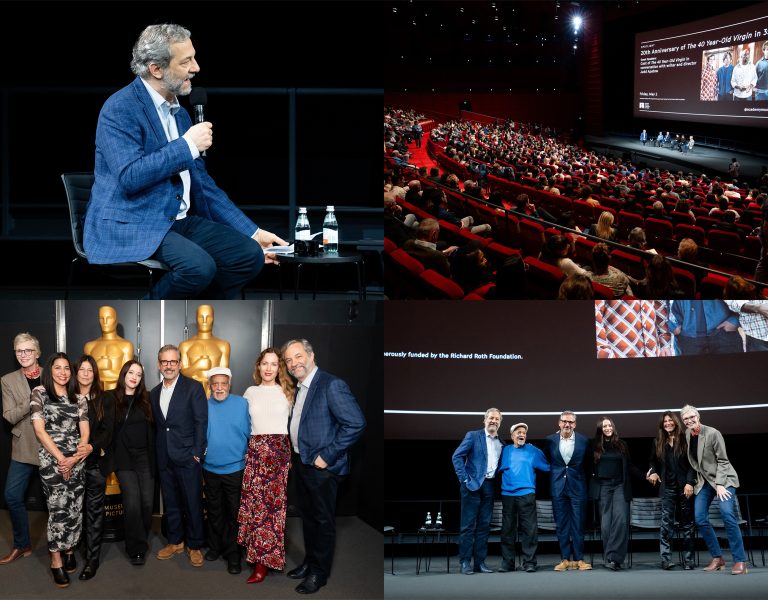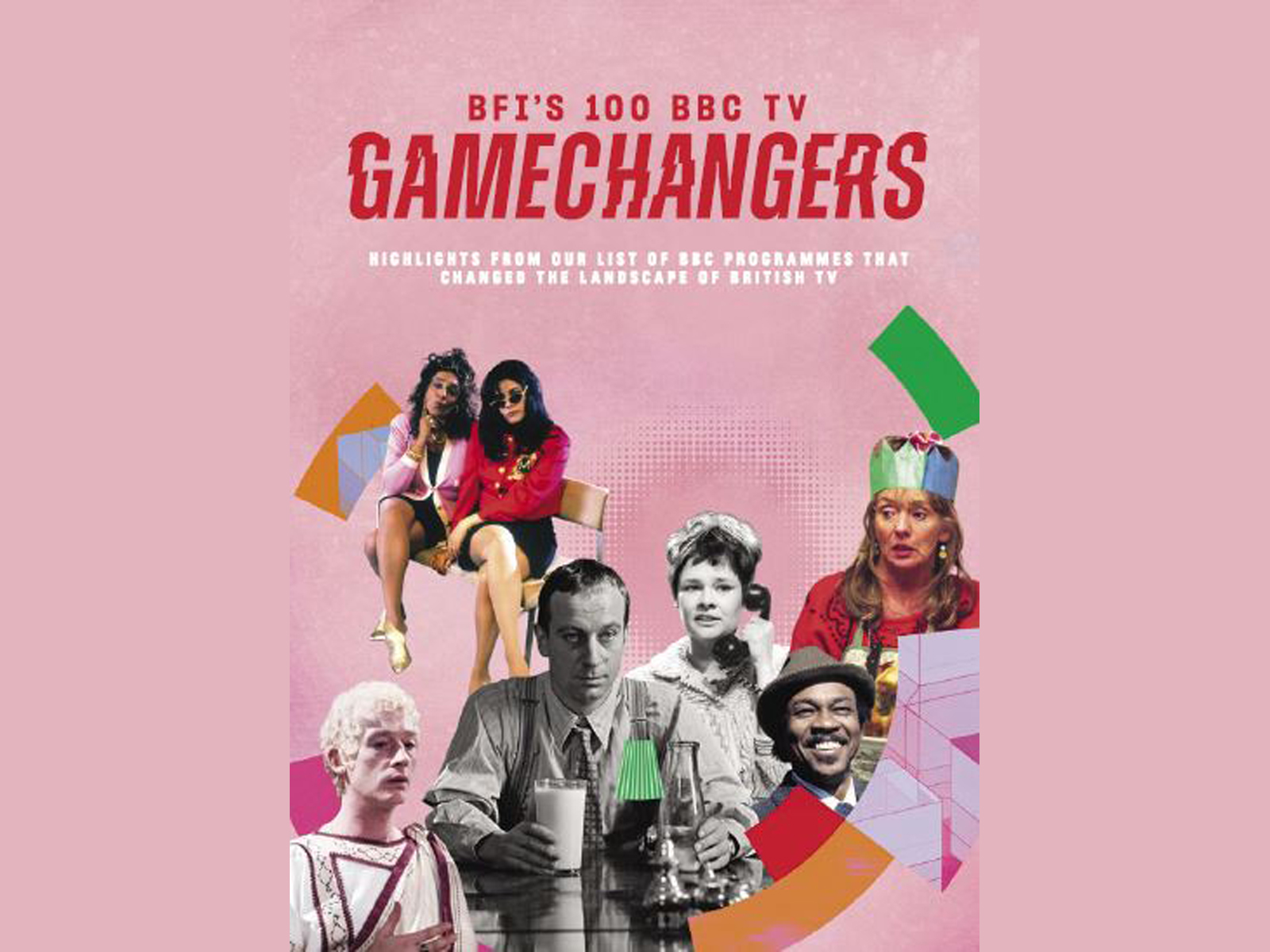
The BFI announced the programme line-up for BFI’s 100 BBC Television Gamechangers, a season celebrating the BBC’s centenary and featuring the TV programmes that changed the face of television.
Compiled by the BFI’s expert team of TV Programmers Marcus Prince, Dick Fiddy, Chantelle Boyea and TV curators Lisa Kerrigan and Elinor Groom, the season is drawn from the BFI’s 100 BBC Gamechangers, a curated list of the innovative BBC TV programmes that have had a significant impact on television and society. Launched in April this has been a collaborative partnership with the BBC to mark its centenary, and has included screenings of many of the key titles on BBC4. Programme highlights at BFI Southbank include episodes of I, Claudius including a Q&A with cast members Sir Derek Jacobi and Dame Sian Phillips (13 November), Play for Today: Licking Hitler including a Q&A with writer/director David Hare and actor Bill Paterson (12 November), panel discussions with the creative teams for The Royle Family, Goodness Gracious Me, The Real McCoy and Empire Road, and a special archival event celebrating the Eurovision Song Contest which opens the season on 22 October.
The BFI and BBC have partnered collaboratively on a number of projects across 2022 to celebrate the BBC’s centenary year, including an upcoming BBC 100 Antiques Roadshow episode (TX 23 October, BBC1) featuring costume designs by Ann and John Bloomfield, who worked on groundbreaking BBC dramas such as The Six Wives of Henry VIII (1970, BBC), Doctor Who (1977, BBC) and the original Poldark series (1975-76, BBC). The Ann and John Bloomfield Collection has been generously donated to the BFI National Archive and is the subject of a current exhibition at BFI Southbank; Costume Design: the Alchemy of Ann and John Bloomfield, running through to 15 January 2023. Two special In Conversation events with Sir Stephen Fry and Sir Bob Geldof hosted by Alan Yentob were recorded earlier this year at the BFI & Radio Times Television Festival and will be broadcast on BBC Four; and a partnership with BBC History which includes the reveal of BFI’s 100 BBC Television Gamechangers list, a contextual article for BBC Canvas and a number of titles from the BFI’s 100 BBC Television Gamechangers list broadcast on BBC Four’s Wednesday 10pm archive slot.
BFI Education and Into Film have also collaborated on BBC 100 Share Your Story, the BBC’s landmark centenary education project taking place in schools across the UK. The project aims to inspire young people to achieve their career goals and help to realise their ambitions. Aiming to highlight careers in storytelling, Into Film, supported by the BFI using National Lottery funding, is providing hands on training to help students take their story from the page to the screen and BFI Film Academy Alumni will participate in the sessions.
The BFI’s 100 BBC Gamechangers list celebrates the shows that have made and remade genres, shaped social attitudes and transformed television itself, demonstrating that the BBC has been a constant pioneer – from its inception to the present day. The selection of titles featured in the BFI Southbank season cover all genres, underlining the richness and diversity of BBC television over the years, and the significance of these programmes within their given genre. The selection does not always feature the most popular or famous examples; instead it seeks to foreground works that became catalysts, or broke new ground. With the growing appetite for high-end television, now is a perfect moment to gauge how the BBC has helped shape the nature of the medium and celebrate this highly significant milestone in the corporations’ history.
To herald the season on 22 October, BFI Southbank presents a special two-part event celebrating the unstoppable, sometimes controversial but always entertaining, Eurovision Song Contest. Session one provides a rare opportunity to see the inaugural Eurovision Song Contest (Jos Pauly, Rene Steichen, 1962) on the big screen thanks to the discovery of an audio copy of the BBC transmission, which has made it possible to create a near complete reconstruction of the show as broadcast. A Eurovision Extravaganza: The Changing Face of Eurovision follows in session two, including a panel discussion hosted by Eurovision expert Gordon Roxburgh which will analyse the changing face of the contest, before a bespoke compilation captures the spirit of Eurovision over the years with rare and pertinent clips.
On 3 November, BFI Southbank presents a double bill of Ken Russell’s ground-breaking, experimental film essays on composers. Elgar(Ken Russell, 1962), made for the 100th edition of Monitor, remains one of the strand’s towering achievements. Ground-breaking in the way it gave creatives the freedom to experiment, the strand revolutionised arts broadcasting and Russell’s work was perhaps the most obvious in this respect. Meanwhile, Russell’s daring film about the life of Richard Strauss, Dance of the Seven Veils (Ken Russell, 1970) made for the Omnibus strand, was shown once and then banned because of objections from the Strauss estate, who blocked the use of his music. Now these compositions have finally come into the public domain it can be seen again.
One of the finest films to ever come from the BBC’s Play for Today strand, Licking Hitler (David Hare, 1978) is a highly nuanced, dark psychological drama that deals with the brutalising effects of war-time propaganda on those that created it. Produced by BBC Birmingham, and the drama department run at that time by the great BBC Head of Drama David Rose, it plays at BFI Southbank on 12 November and includes a panel and Q&A with actor Bill Paterson and writer director David Hare, whose huge talent was championed by Rose.
Game-changing through Jack Pullman’s evocative scripts, I, Claudius reinvented the historical drama, riveting the nation with its mix of intrigue, sex and violence. We present the seminal episode,Poison is Queen (Herbert Wise, 1976), which sees the evil Livia continue her incessant quest to place her son on the emperor’s throne. Boasting superb performances, this screening on 13 November is followed by a Q&A with cast members Sir Derek Jacobi and Dame Siân Phillips.
In the first of four plays, each presented from the perspective of a different family member, Theatre 625: Talking to a Stranger Part 1: Anytime You’re Ready I’ll Sparkle (Christopher Morahan, 1966) focuses on the daughter Terry, played by a young Judi Dench, and the events over the course of one weekend that will change her family’s life forever. Game-changing on so many levels, John Hopkins’ script elevated suburban family drama to the intensity of Greek tragedy. It also exploited a new-found confidence in the ability of television drama to employ original narrative forms to examine a terrible event in one family’s life. It plays at BFI Southbank on 20 November.
British television was late in embracing the vitality and difference of its own ethnic minority cultures, but when it all came together, the result was fascinating programming that may have come from a minority viewpoint but proved to have universal appeal. If Goodness Gracious Me was a British sketch show using pitch-perfect musical parodies and skits satirising British Asian Culture and integration, The Real McCoy was a sketch comedy show written and performed by a diverse host of British talent, which tackled issues around race and ethnicity head-on. Two episodes of these game-changing shows play at BFI Southbank in a double-bill on 21 November, including a panel discussion with cast and creatives to be announced.
Starting out with little fanfare on BBC2, The Royle Family would eventually establish itself as a massive ratings winner. The series struck a chord with its relatively slow-paced, real-time storytelling, naturalistic performances, beautifully observed characters and its mundane yet utterly relatable dialogue. Defined by the warmth that existed between its family members – a refreshing change from the harder-edged, cynical comedy prevalent at the time – two episodes play on 27 November, followed by a panel discussion with cast & creatives to be announced.
Also on 27 November is a double bill from The Wednesday Play anthology series. Written by David Mercer, who had first-hand experience of psychiatric treatment, In Two Minds (Ken Loach, 1967) caused considerable controversy when first broadcast. Directed in a semi-documentary style by Ken Loach, it drew criticism for blurring fact and fiction. Meanwhile, Where the Buffalo Roam (Gareth Davies, 1966) shows Dennis Potter’s trademark love of the fantasy sequence was in evidence even in this early play. BFI Southbank presents a rare opportunity to see this little-screened gem by one of our greatest writers.
Two episodes from Empire Road (1978) round the season out on 30 November, including a panel discussion about Britain’s first serious attempt at a soap centred on the lives of the West Indian, East Indian and South Asian community living in the heart of multicultural Birmingham. EMPIRE ROAD was the first British television series to be written, acted and directed mostly by Black artists, and gave an insight into the day-to-day life of a racially diverse community. Writer Michael Abbensetts combined comedy, drama and tragedy to explore social concerns of the time: race issues, family issues and interracial relationships. The series exploited the familiar tropes of the television soap and in applying it to underrepresented groups in society Empire Road did much to normalise the representation of the Black community on UK television.
